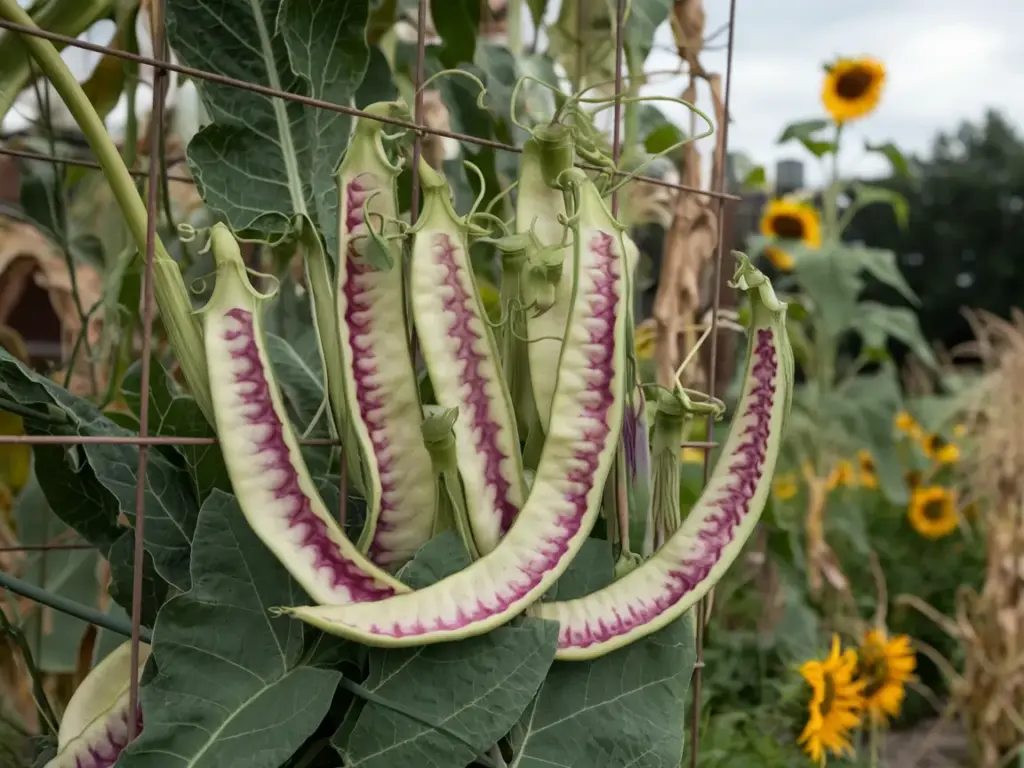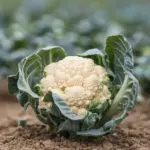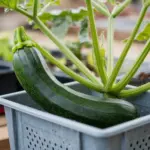4. Dragon Tongue Bush Beans: A Heritage Garden Treasure

Origin and Characteristics
Dragon Tongue beans are a fascinating Dutch heirloom variety that dates back to the late 1800s. These unique beans feature stunning cream-colored pods with vibrant purple stripes that make them instantly recognizable. The pods grow to about 6-7 inches long and offer a crisp, tender texture with exceptional flavor.
Growing Requirements
- Plant in well-draining soil with pH 6.0-6.8
- Space seeds 4-6 inches apart in rows 18-24 inches wide
- Requires full sun exposure (6-8 hours daily)
- Optimal soil temperature for germination: 65-85°F
- Plant after all danger of frost has passed
- Moderate watering needs – keep soil consistently moist but not waterlogged
Support and Care Tips
While classified as a bush bean variety, some gardeners provide light support using:
- Low trellises
- Small tomato cages
- Bamboo stake clusters
- Natural companion plants like corn or sunflowers
Harvesting Guidelines
- Harvest pods when they reach 6-7 inches in length
- Look for prominent purple striping – indicates peak maturity
- Pick every 2-3 days to encourage continuous production
- Morning harvesting provides the crispest pods
- Regular harvesting extends the productive season
Culinary Uses
Dragon Tongue beans offer incredible versatility in the kitchen:
- Fresh eating in salads
- Quick stir-fries
- Traditional Dutch pickling
- Blanching and freezing
- Shell bean usage when fully mature
Seed Saving
To save seeds for next season:
- Allow pods to fully mature and dry on plants
- Wait for pods to turn tan and brittle
- Shell beans when completely dry
- Store in airtight containers in a cool, dark place
- Seeds remain viable for 3-4 years when properly stored
Coming up next: Discover the fascinating world of Lemon Cucumbers – nature’s perfect snacking cucumber that looks nothing like what you’d expect! Click “next” to learn how these tennis ball-sized, yellow fruits can transform your garden and your salads.









GIPHY App Key not set. Please check settings